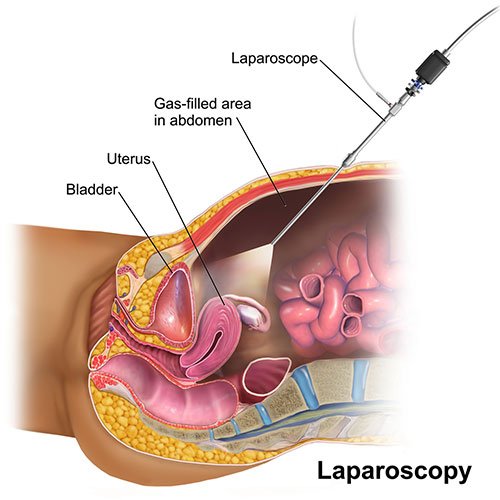
Laparoscopic Gynaecological
Laparoscopic Gynaecological
Laparoscopic gynecological surgery is a minimally invasive surgical technique used to diagnose and treat various conditions related to the female reproductive system. This approach utilizes a laparoscope—a thin, lighted tube equipped with a camera—which is inserted through small incisions in the abdomen. This allows the surgeon to visualize the internal organs on a monitor without needing large incisions, leading to several advantages for patients.
Laparoscopic gynecological surgery represents a significant advancement in surgical techniques, offering a less invasive option for treating various gynecological conditions. With its numerous benefits, it has become the preferred method for many gynecological procedures, contributing to enhanced patient outcomes and satisfaction. If you are considering laparoscopic surgery, discussing the specifics with a qualified gynecologist can provide insights into what to expect and how to prepare for the procedure.

Indications for Laparoscopic Gynecological Surgery
Laparoscopic techniques can be employed for a variety of gynecological conditions, including:
- Endometriosis: Removal of endometrial tissue that grows outside the uterus.
- Uterine Fibroids: Removal of fibroids (leiomyomas) while preserving the uterus.
- Ovarian Cysts: Evaluation and removal of cysts from the ovaries.
- Ectopic Pregnancy: Treatment of a pregnancy that occurs outside the uterus.
- Hysterectomy: Removal of the uterus, which may be performed laparoscopically.
- Pelvic Adhesions: Removal of scar tissue that can cause pain or fertility issues.
Benefits of Laparoscopic Surgery
- Reduced Recovery Time: Patients typically experience quicker recovery compared to traditional open surgery. Most can return to normal activities within a few days.
- Less Pain: Smaller incisions usually result in less postoperative pain.
- Minimal Scarring: Tiny incisions lead to less visible scars, improving aesthetic outcomes.
- Lower Risk of Complications: Laparoscopic procedures often have fewer complications, such as infections and blood loss, than open surgeries.
- Shorter Hospital Stay: Many laparoscopic procedures are performed on an outpatient basis, allowing patients to go home the same day.
